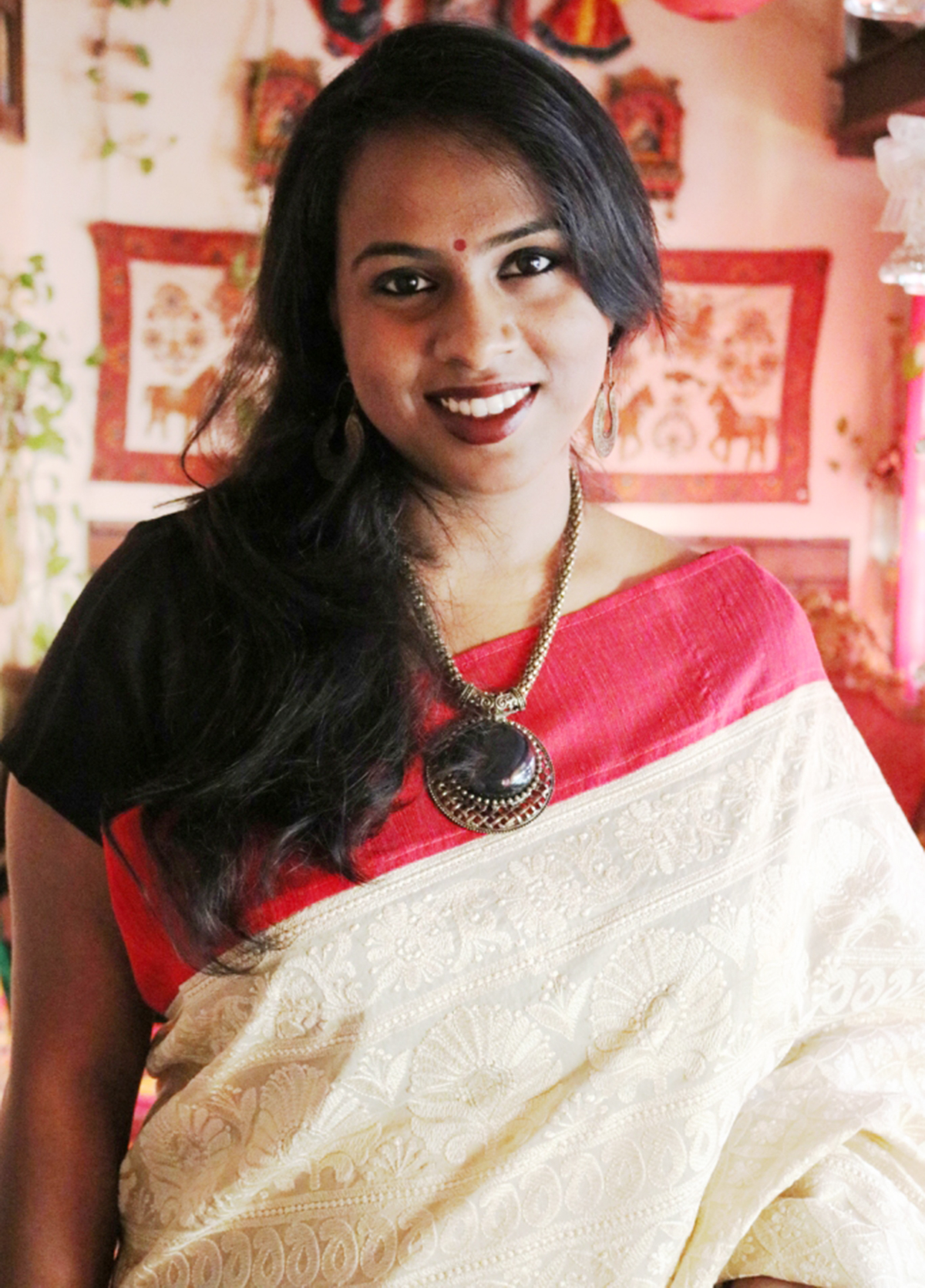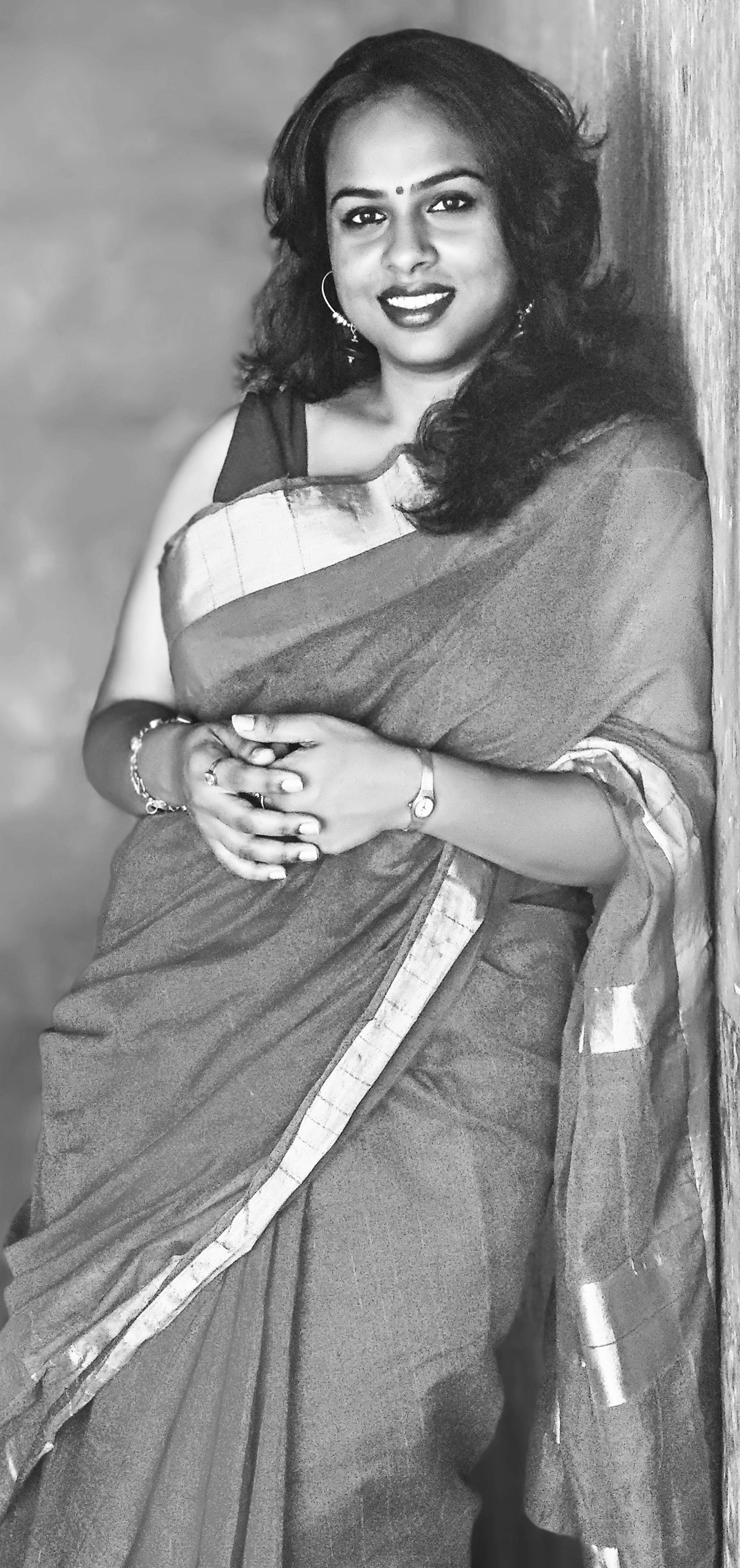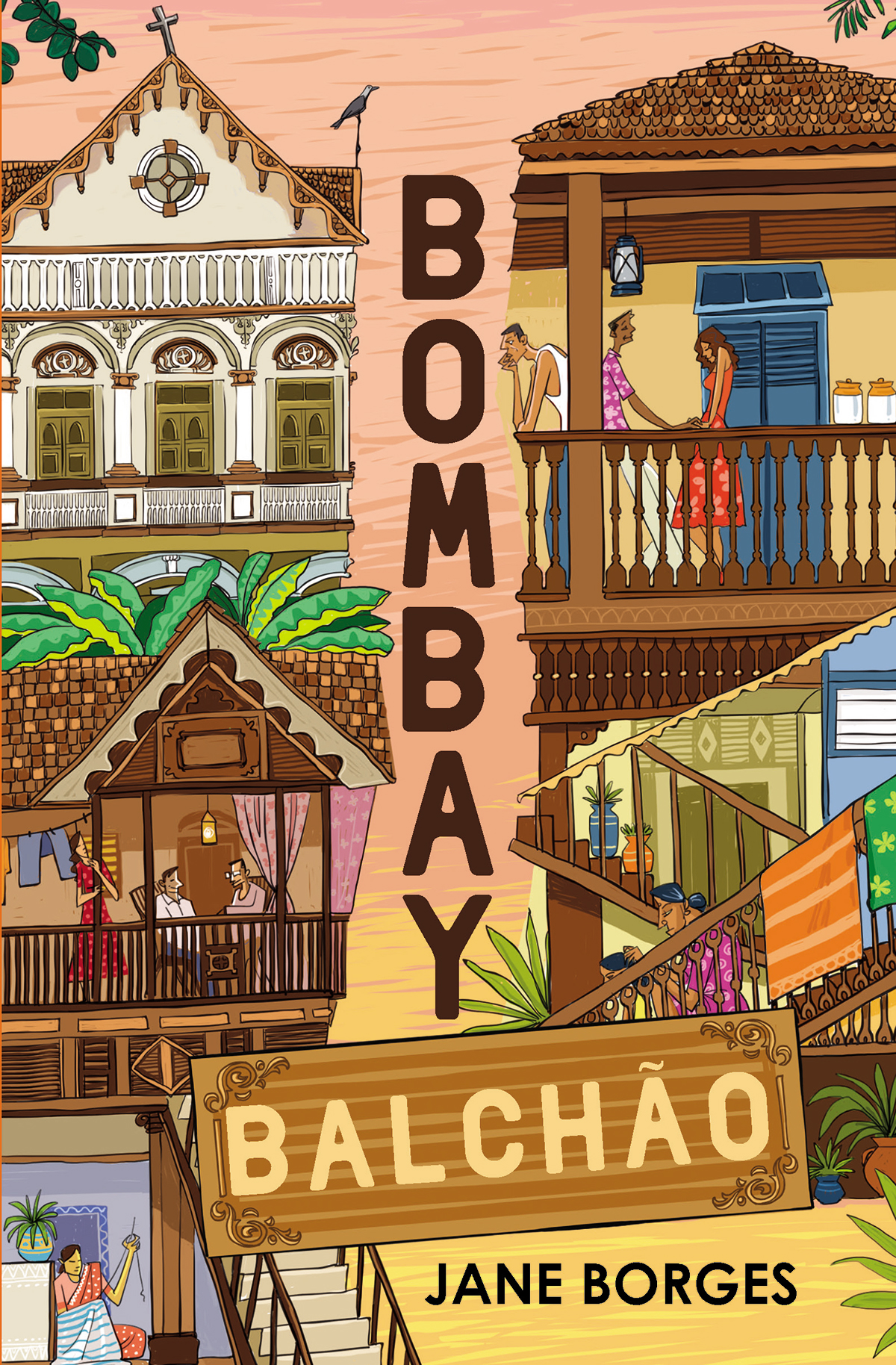
Journalist and author Jane Borges. Photos courtesy of Westland
The novelist and journalist on her debut novel, Bombay Balchão, how it defies the stereotypical ethnography of Christians and why writing a historical novel or a culturally-pivoted book may be exhaustive as a writer
Mumbai-based author Jane Borges calls herself a seeker of stories. Her debut novel, Bombay Balchão (Westland, 2019), established this fact with detailed stories about people in a fictional old Bombay neighbourhood — Cavel. The quest for stories comes naturally to Borges, a journalist: she has used this expertise in creating rich characters and interesting settings for her book. “Moonlighting as a journalist,” as she puts it. Borges, however, is not alien to book writing as she co-authoured (along with S. Hussain Zaidi) her first book The Mafia Queens of Mumbai (Tranquebar/Westland, 2011) although she underlines that the experience of writing both the books were quite different. Borges weaves her childhood encounters with her own neighbourhood — also called Cavel — with her imagination, to locate her first book in a period setting.
However, the ethics of writing a period novel without typecasting the characters — the Goan/Portuguese community in this case — took a chunk of her writing efforts. This, especially when this community is not at the top of the cultural hegemony in Indian literature, takes away the limelight from rich stories. “Unfortunately, a lot of good literature gets lost due to poor or ill-thought marketing. There is so much focus on the popular names or authors who make it to award shortlists — we lack a general curiosity and desire to discover our rich literature,” says Borges.
Excerpts from an interview:
Tulika H. Bhojwani: How was your experience in Bombay Balchão different from co-writing Mafia Queens of Mumbai?
Jane Borges: My first book, Mafia Queens of Mumbai, required some rigour and research. It was non-fiction, and one where we were attempting to tell the stories of 13 real-life female criminals, many of whom had either passed on or about whom very little had been written or was known. There was a lot of leg-work involved there, but very limited scope for me to use my creativity or imagination as a writer. All the stories were based on our interviews and research and recounted true events. At the end of the day, it was meant to be a factual account. That wasn’t the case with Bombay Balchão. It was a novel, and that made it a completely different kind of book. Though inspired by a real-life Catholic community in South Mumbai, I had complete liberty and control over the narrative and my characters. In fact, I wrote the stories first and wove in bits from my research later.
Tulika Bhojwani: The setting of your book is almost poetic. There is so much colour and emotion on every page. How did you decide upon the setting of your book?
Jane Borges: Bombay Balchão actually comes from a very personal space. I am a resident of a community in South Mumbai that’s a lot like the one that I have recreated in the book. And incidentally, it’s also called Cavel. The real Cavel and the fictional one have the same, shared history. It is a small Christian neighbourhood in Marine Lines, Mumbai, and not known to many; it is one of the oldest Catholic pockets in South Mumbai. This is where the Portuguese missionaries settled back in the 15th and 16th centuries, and by the 20th century, it became home to many Goans who migrated from Portuguese-Goa. Today, with most Catholics having moved abroad or to the suburbs, Cavel is no longer the place, where church bells drowned the sounds of handcarts and hawkers. I have been a witness to this change. That made it easier for me to tell the story because the setting was based on my lived experience. All I had to do was create characters, the kind you’d love or hate, but still find relatable.
Tulika Bhojwani: How did you come across this tiny neighbourhood in Mumbai that most of us have never heard of? Are there any life experiences that you had there?
Jane Borges: I moved into this neighbourhood in 2003, after my parents bought a home here, from a relative. My mum, who used to visit this place as a child, says it was her dream to own a house in Cavel, because of how peaceful this part of town was. She moved to Muscat in Oman after marriage, and my brothers and I were raised there for most part of our childhood. When I returned to Mumbai as a 16-year-old, the city was quite a revelation to me. It was super chaotic, always on the go, and forever buzzing with activity. Cavel stuck out like a sore thumb because it was nothing like the rest of Mumbai, where it belonged, and which it was very much a part of. It was like a refreshing oasis in a desert. And that made me curious about it.
There are lots of amusing experiences that I had in Cavel, one of which also inspired the chapter, ‘The Water Fiasco’. When we moved into Cavel in 2003, we learnt that one of the water pipelines to our home — most old buildings have tanks in each home, and they receive water, based on timings allocated by the local municipality — had been disconnected. We don’t know who did it, but after that, for many months, until we got a new pipeline, we had to get water from our ground floor neighbour. We kids would carry buckets to her house, and then climb up two floors every day. We used to be so particular about our water consumption then —how much we used to wash clothes, take a bath or even sweep the floor. That incident stayed with me and eventually found its way into the chapter.
Tulika Bhojwani: The characters in your book are as different as can be even though they are connected. What went behind the scene when you defined your characters?
Jane Borges: This book is as much about people, as it is about a place. And a place is made up of all kinds of people — the good, bad, and evil. I never intended to create a protagonist; which is why you won’t see a central character. Every individual gets equal space and opportunity to tell their story — why they became what they did, their motivations, what makes them so loved or hated. I think we are all products of situations and experiences. I wanted the reader to live out these experiences with my characters before judging them.
Tulika Bhojwani: Are these characters in any way based on real-life people?
Jane Borges: Well, not exactly. Though, over the course of my research and conversations with residents, I came across interesting vignettes that shaped the characters. My protagonist, Michael Coutinho, for instance, is a work of pure imagination. But my late dear friend, former veteran journalist Ervell E Menezes, who lived in the building next to mine, had once shared an amusing incident, of how he was forced to grow a beard as a decoy to keep away a bunch of goons, who he had written about in an article. He wore that beard till he passed away last year. In the book, Michael grows a beard for the same reason. Some years ago, I had done a feature story on a local Crossword hero Joe Albuquerque, a resident of Dabul, another Christian neighbourhood that is a few metres away from Cavel. The character Mario in my novel shares a similar passion for the game.
To answer your question simply, yes, there’s a bit of someone real in every character — some parts of me, some parts of others who I knew and whose life stories I found incredibly remarkable, and endearing.

Tulika Bhojwani: There are a lot of familiar elements in the book’s ethnography. How did you steer away from typecasting of the culture and the community in the book?
Jane Borges: Because I am a Catholic with roots in Karnataka and Goa, I was very conscious of this. Having witnessed how popular narratives have generally been unfair, and inauthentic in their portrayal of the lives of Indian Christians, mostly Goans, I knew this is something I had to resist doing. I must admit that typecasting always seemed like a very tempting prospect because it required little effort: A mini-skirt flaunting Sandra, a perennially drunk Pedro, and the broken-Hindi speaking daruwaali aunty sound perfect characters for a colourful book, but how honest would that make the novel? It’s likely that you will see similar types of people in my book, too. That is also because there is some truth to stereotypes. But what has happened in the past — and that’s the problem with cinema, especially — is that we never gave ample room to these characters to grow. So, you are only stuck with one kind of idea of them. You were never told about the struggles of the lady who sold illegal hooch liquor, or how the fortunes changed for a certain person, which eventually forced him to take to the bottle. Those stories were missing. We focussed too much on playing to the gallery, and that’s why they felt less like real people and more cardboard cut-outs.

Tulika Bhojwani: Give us an insight into the journey of writing this book.
Jane Borges: I began writing this book in 2015 when I briefly moved to Muscat, where I was working with a newspaper. Though I lived with my dad, it was an incredibly lonely phase in my life, possibly, because I realised that Mumbai was where my heart was. On the spur, I began writing. Initially, they were meant to be short stories, written more to pass time, because I was so incredibly bored out there, and of course, getting very nostalgic about home. But, the more I wrote, the more I saw a pattern. Eventually, I knew I wanted to write a novel. When I returned to Mumbai a year later, I showed it to a few friends, but the response was underwhelming. I gave up the project completely for two years and concentrated completely on work. In 2018, I met Anish Chandy, of Labyrinth Literary Agency. He was hoping I would write another Mafia-related book. I, instead, suggested that he look at the shelved manuscript, which at the time was about 60 percent complete. He read it and loved it, and the rest, of course, is history. Over and above that, it took a year-and-a-half to complete the novel.
Tulika Bhojwani: You are a journalist. Did it impact your vision and the writing for this book? How?
Tulika Bhojwani: You are a journalist. Did it impact your vision and the writing for this book? How?
Jane Borges: A lot. I started out as a storyteller, but by the time my stories came together, I realised there were cultural elements and events that I was documenting in the book, which I had to look at with a more serious lens if I had to do justice to them. A similar feedback came from my commissioning editor Sanghamitra Biswas of Westland, who after reading the first manuscript, suggested we historicise it. That’s when the journalistic curiosity set in. That I was covering Mumbai’s cultural and heritage scene for the weekend newspaper where I worked meant that some of these facts slowly and often organically revealed themselves to me. Like the story of the missing church bells from Vasai fort, which I write about in the book. That was a find, which I stumbled upon when I met a researcher from Vasai for another story that I was pursuing.
Tulika Bhojwani: Do you think the Goan/Portuguese community in particular and the Christian community, in general, have been under-represented in Indian literature? What did we miss?
Jane Borges: Not under-represented, but yes, definitely not part of the mainstream. It’s only in 2020 that I got acquainted with Damodar Mauzo’s books. And I am almost embarrassed to admit that I hadn’t read any of him till then. His Konkani novel, Karmelin (1981), which was later translated into English (1990), is the story of a Goan maid in the Gulf, and, what a poignant work it is. There’s also Ivan Arthur’s heart-warming A Village Dies (2016), about two neighbouring Christian gaothans in Andheri, which was a window to the diverse Catholic community there. Then, of course, we have the marvellous Maria Aurora Couto. So, there is a lot of literature available, but very few are being talked about (and even read), and that’s a huge disservice to these wonderful storytellers. Unfortunately, a lot of good literature gets lost due to poor or ill-thought marketing. There is so much focus on the popular names or authors who make it to award shortlists —we lack a general curiosity and desire to discover our rich literature.
Page
Donate Now
More from The Byword
Comments
*Comments will be moderated












